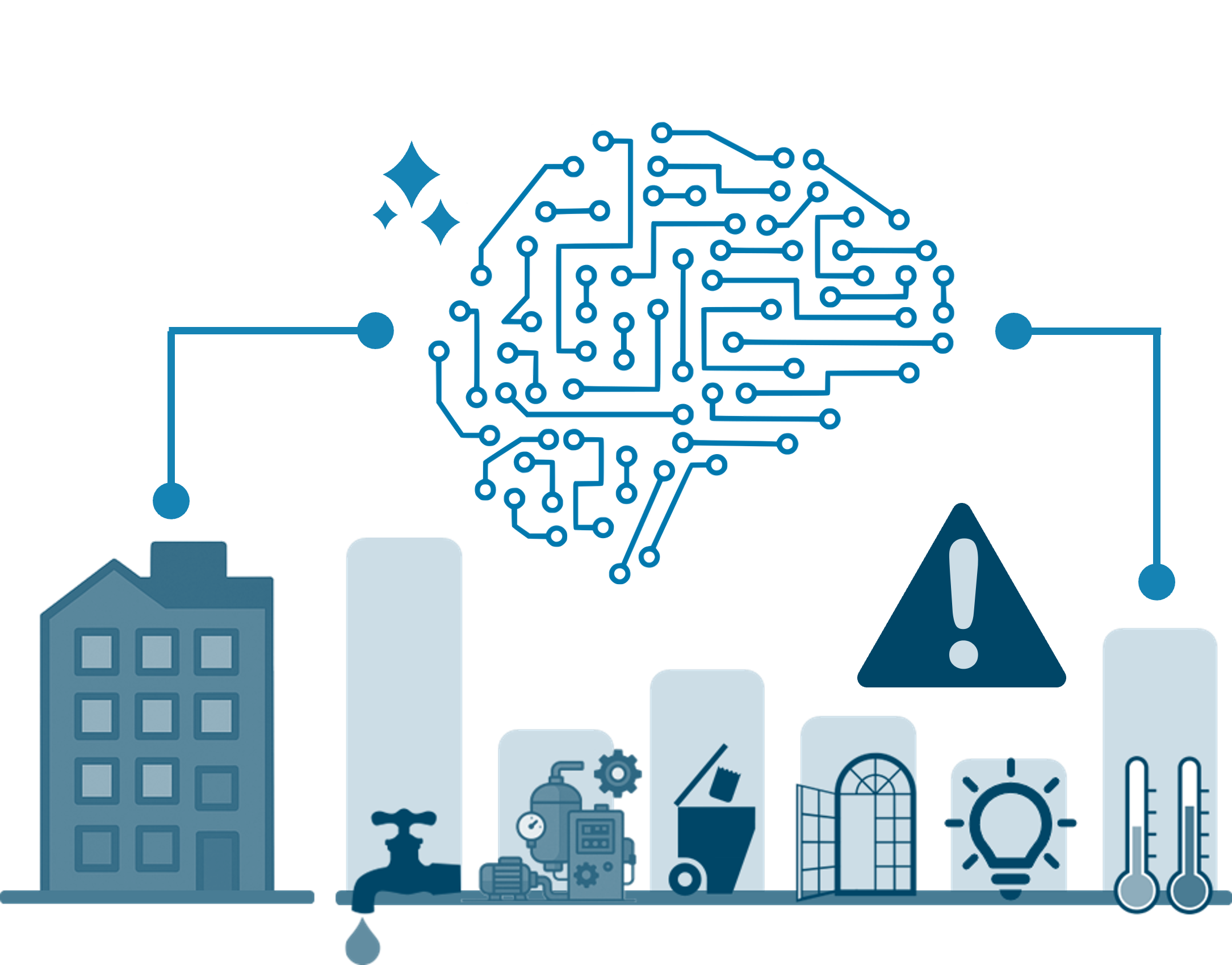AI-driven predictive maintenance for buildings (AIDA-B)

An Einar Mattsson – KTH Industrial Collaboration Pilot Project
Background
KTH's gold medal in Industrial Cooperation in 2023 (now called KTH's prize in industrial cooperation) was awarded to the real estate company Einar Mattsson's CEO, Stefan Ränk. A prize sum of SEK 500,000 is attached to the medal, which is to support a cooperation-related effort in KTH's operations prioritized by the recipient. The prize money is proposed to be used for a pilot project to develop KTH's ability to advance predictive maintenance in buildings through AI, promoting sustainability within the property industry. The operation is referred to below as AI-driven predictive maintenance for buildings (AIDA-B).
The project is inspired by EM’s goal/vision of utilizing AI to optimize maintenance planning in existing buildings, using historical and real-time data to identify the ideal timing and scope for renovations or changes in materials. This initiative aims to reduce costs while promoting the sustainability of the built environment and supporting comfort for building users.
See news article “ Stefan Ränk awarded KTH's Award for Industrial Collaboration ”.
Project goal
The goal of the project is to identify the key drivers of building maintenance costs and develop accurate cost predictions for various types of residential buildings, from older to newer constructions. This objective is particularly relevant for older buildings, which constitute a large proportion of those in use today, where maintenance interventions are often neither time- nor cost-efficient.
Project description
Through data collection and analysis in newer buildings, the aim is to gather not only information about past failures, maintenance activities, and associated economic costs but also sensor-generated environmental data—both outdoor and indoor (e.g., temperature, air quality)—as well as occupant density and behavioral patterns, providing insights into how apartments are utilized. This data will then be used to train predictive models to determine the main contributors to maintenance costs and forecast associated expenses in newer buildings. Ultimately, the goal is to use these findings to gather insights for predictive maintenance in older buildings, where the available data—such as sensors, behavioral patterns, and historical logs—is limited. The project will support decision-making while avoiding expenses associated with ill-timed and/or excessive interventions.
The analysis will focus on key metrics, such as real-time information on the current condition of systems and components, predictions of remaining operational life, and fault diagnosis, correlating potential root causes with malfunctions. Additionally, a risk or consequence analysis is essential to assess the potential impact of system failures on both comfort and, more importantly, economic risks. The preliminary step of the analysis will involve a literature review of current maintenance strategies (with emphasis on preventive maintenance) for both old and new buildings.
Implementation
The AIDA-B project is organized in two main phases. The first phase focuses on conducting a state-of-the-art review and carrying out data collection, cleaning, and processing, and the formalization of the problem formulation. The preliminary phase concludes with a visit to the EM facilities and an initial presentation of the seed project. In the second and core phase, efforts are directed toward developing a database of critical components and/or materials that drive costs in building maintenance, along with estimates of the associated expenses.
The project is carried out by MSc students in collaboration with Assistant Professor Angela Fontan (KTH/EECS) and Associate Professor Kjartan Gudmundsson (KTH/ABE), with the support and contributions from Mikael Dimadis (EM) and EM through discussions, workshops, and project updates.
Time period:
2024 – 2025
Project team
EM Collaborators:
EM senior manager Mikael Dimadis

KTH Collaborators:
-
Yonghong Huang (MSc student in Machine Learning, KTH)
-
Yuxin Jin (MSc student in Machine Learning, KTH)
Schools
School of Architecture and the Built Environment, Division of Sustainable Buildings
School of Electrical Engineering and Computer Science, Division of Decision and Control Systems
Project partners
Einar Mattsson
Research areas
Smart buildings, Predictive Maintenance for Buildings, Monitoring data, Data Analysis.
Funding
This project is financed by KTH and Einar Matsson, as part of KTH's gold medal in Industrial Cooperation (now called KTH's prize in industrial cooperation), awarded in 2023 to EM’s CEO Stefan Ränk.
